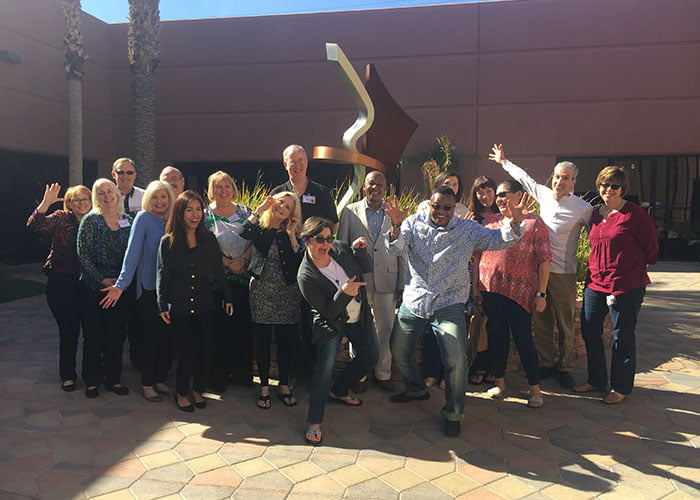As the Dutch IT firm Schuberg Philis grew, it started to become more of an “organization.” In his keynote address Thurday, information manager Ilja Heitlager explains: “Without realising it, we created departments and hierarchy, inadvertently alienating our experts from our customer. Our people are very skilled and focused, but they were lost. In times of crisis, however, for instance if a machine broke down, multidisciplinary teams were created, with experts in the front. And the whole energy changed.”
Schuberg Philis decided to make this interdisciplinary approach their way of working all the time. They linked their experts closer to the customer, by making them fully responsible for their systems. “Our people are not running an IT machine, they are running a bank,” says Ilja. “If the machine breaks down, people can’t draw money, and they know it”.
The conversations changed. “If people are responsible for the system, and something happens, they don’t talk about the past (‘what happened’, ‘what went wrong’, ‘why did it break down?’) or about others (‘they should just…’),” says Ilja. “Instead, they talk about the future and about themselves (‘how do we solve it’, ‘how can we get the bank up and running?’).” At Schuberg Philis they call this this cupfighter mentality.
Another thing that happened is that people built more personal relations with customers. Ilja tells of finding phone numbers of the company’s engineers scribbled on whiteboards in customers’ offices. “They know whom to call, instead of just having to rely on an anonymous 0800 number.”
This year, the company decided to take this way of working to the next level. While the company used to work with chain-optimizing methods such as the theory of constraints and looking for the weakest link, this always drained the energy from the room. “I wanted to talk about: what makes people get up in the morning? What do they bring to work?” says Ilja.
With David Cooperrider the company organised a three-day Appreciative Inquiry (AI) summit, with over 200 people. Employees as well as clients, family and friends joined. “That summit ended in 16 projects. But that is not the main thing. The main thing is that it gave us 117 people the same energy and a level of affection for each other, their work and our environment, that is stronger than before. And that is what fuels our company right now, making work more meaningful and bringing our company to the next level.”
Written by: Saskia Tjepkema. Article originally posted on April 26, 2012 on the 2012WAIC website.


Add your comment now using your favorite social account or Click Here To Login
